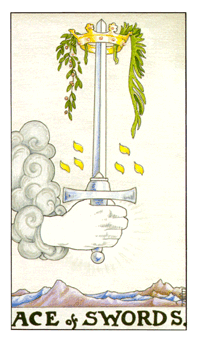|
|
|
Home | Join ATA | About ATA | Tarot Courses | Readings | Resources | Contact Us |
Tips on Increasing Client Response
|
||
|
|
Our writing style can be warm and friendly or as cold as an automobile repair invoice. Critiquing your work for style, as well as content, will increase your client response. Effective writing is an acquired skill and can be mastered by anyone who has the desire to improve their writing technique. Let's take a closer look. Personalize the reading using your client's name no more than three (3) times in the body of your letter. Much more than three times will appear phony, your client will see through this tactic and it will detract from your reading. Personalizing your letter will pull your client into the reading and will prove to your client that you are thinking of, and reading for, them. Involve your client with phrases such as: Ask questions. This is an excellent method to involve your client
in the reading and I can't tell you how many clients have responded
to me with the answers! Don't bombard your client; a couple of
strategically placed questions will do just fine. Here are a couple
of examples: And for a Court Card: There is something about doing a free reading and asking a couple of questions that frequently triggers a response mechanism. I don't know what it is or why it works, but it generates client responses for me. Maybe it' s the fact that we are giving them a free reading, trying to help them with a problem, and they feel obligated to answer a couple simple questions. Avoid over-use of short sentences. They break the flow. They read like a first grade primer. They are irritating. Short sentences should be used to enhance your readability, not detract from it. Watch for over-use of certain words such as: And, That, Just,
Maybe, Sometimes, Perhaps. For example: Netiquette is Internet etiquette and proper use of netiquette
is essential to E-communications. Use of CAPS is considered shouting
and poor netiquette. It's important to monitor our tone and technique.
It is easy for the reader to get the wrong impression because
we don't have the benefit of body language or voice inflection
to assist us. And when you ARE shouting - it's easy to understand
why someone would get the wrong impression, isn't it? Instead
of all CAPS try: At times we feel the need to tell it like it is. Please try to buffer your sentences with a little kindness. Think about how you would feel if someone said, "You'd better get your act together right now!" Versus "It's time you gave serious thought to making some tough decisions." We addressed the same issue; however, the second statement puts the client in control of the situation. Which brings me to the next issue. Refrain from making judgments. If you don't have a personal Code of Ethics I urge you to write them. Don't pull something off the web, copy it into word-processing, and say, "there, that is done." Get a paper and pen and write them. The time and effort you put into this project will bring you awareness of your own prejudices and judgments. Here is the address of a Code of Ethics, written by Aminah Corona, CPTR: http://www.freetarot.us/members/aminah.html. Edit judgmental statements out of your reading. Phrases such as, "I see you have some tough decisions to make," will go over a lot better than "You'd better quit messing around on your partner." Many of us have an emotional wound that will flare up from time to time. Sometimes a client will unknowingly trigger something and it brings back painful memories. It is our responsibility as Tarot Readers to read the cards. Get your mentor involved with some of these readings that push your buttons. They can help you keep statements of judgment out of your writing. Use religious reference sparingly. We don't know what religious affiliation, if any, our client is involved with. Don't assume anything when it comes to another person's religious beliefs. If you make a religious reference, do so in a broad statement with words such as Higher Power, Inner-Voice, and Personal Insights. Most people will find those words palatable and will understand exactly what you are saying. Here is a Summary of the techniques we just discussed:
Deb Dorn, March 13, 2000
|
|
|
|
||
|
Read the ATA's online Newsletter, Tarot Reflections! |
|
To receive notification each time a new issue is published, send email to: |
All
Contents Copyright (c) 2003 The American Tarot
Association
Questions or Comments?
Contact Us.
Broken links or questions about the site? Contact our
Webmaster.

